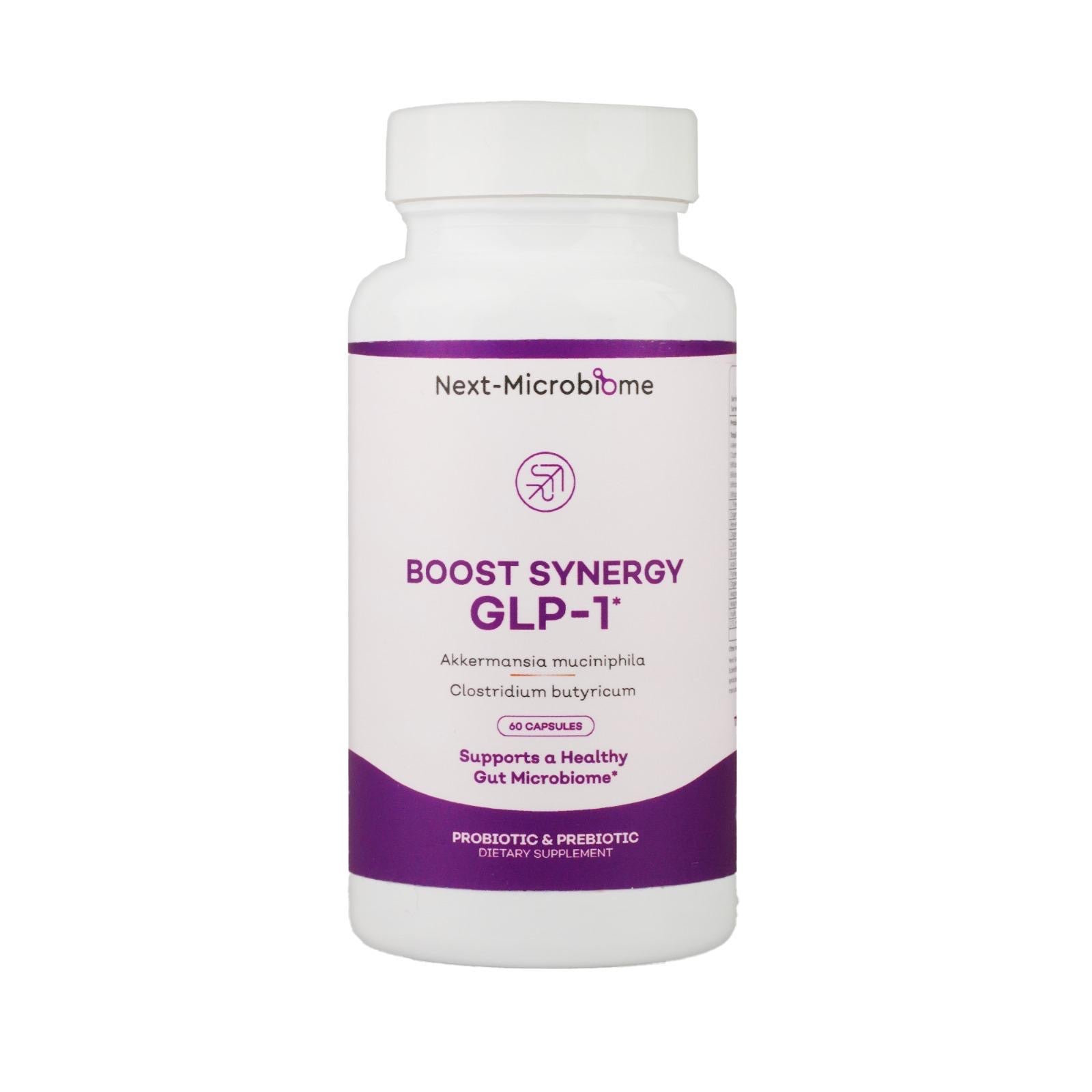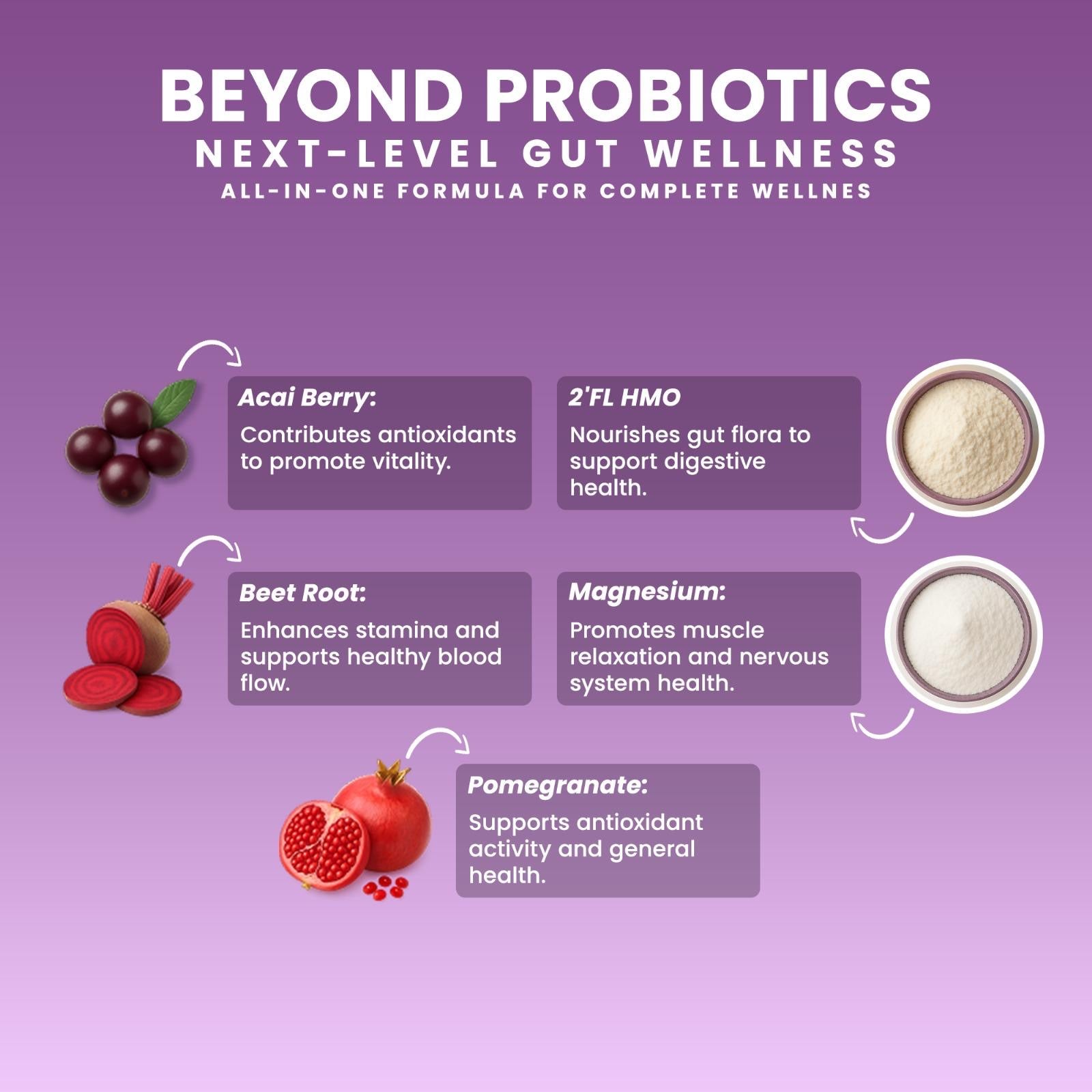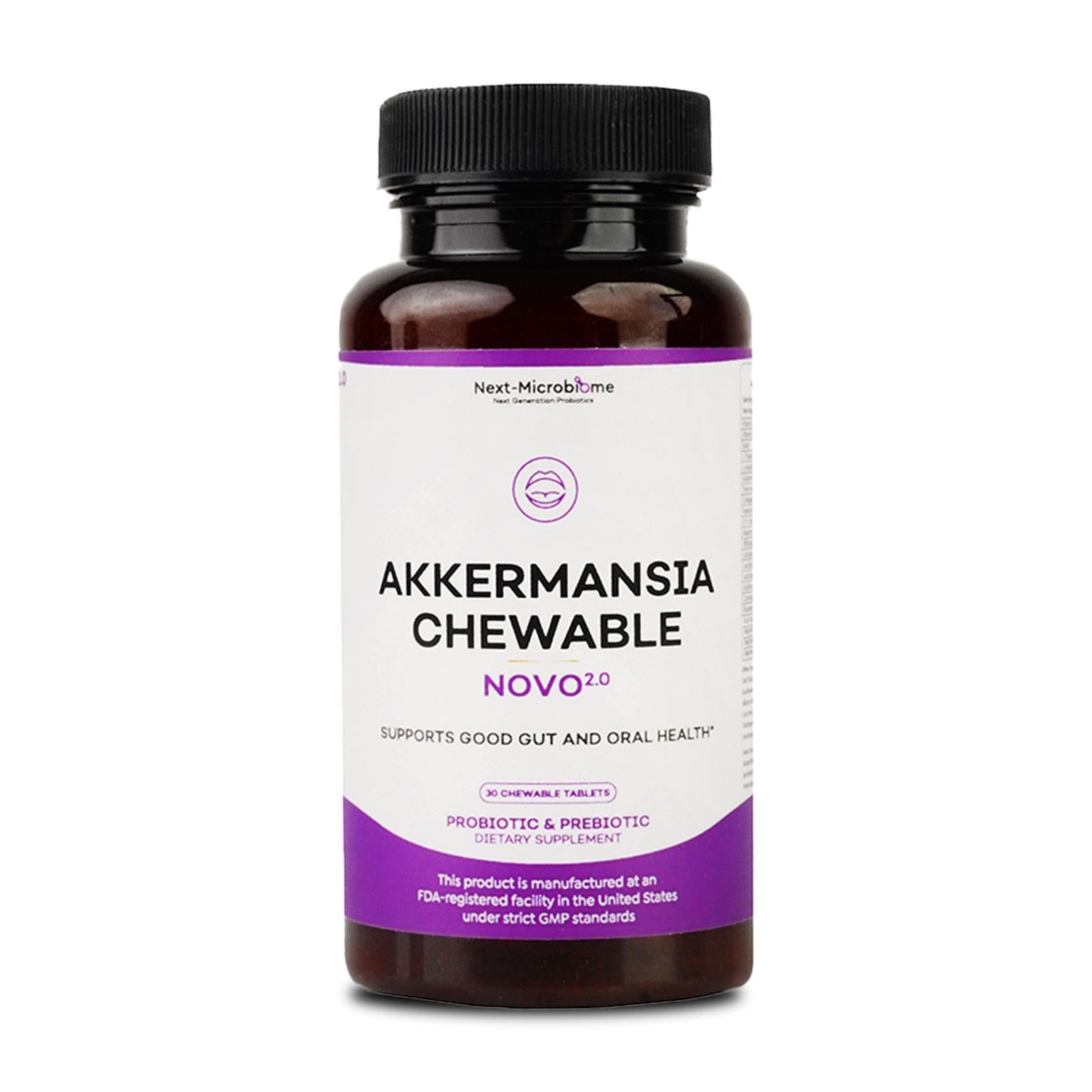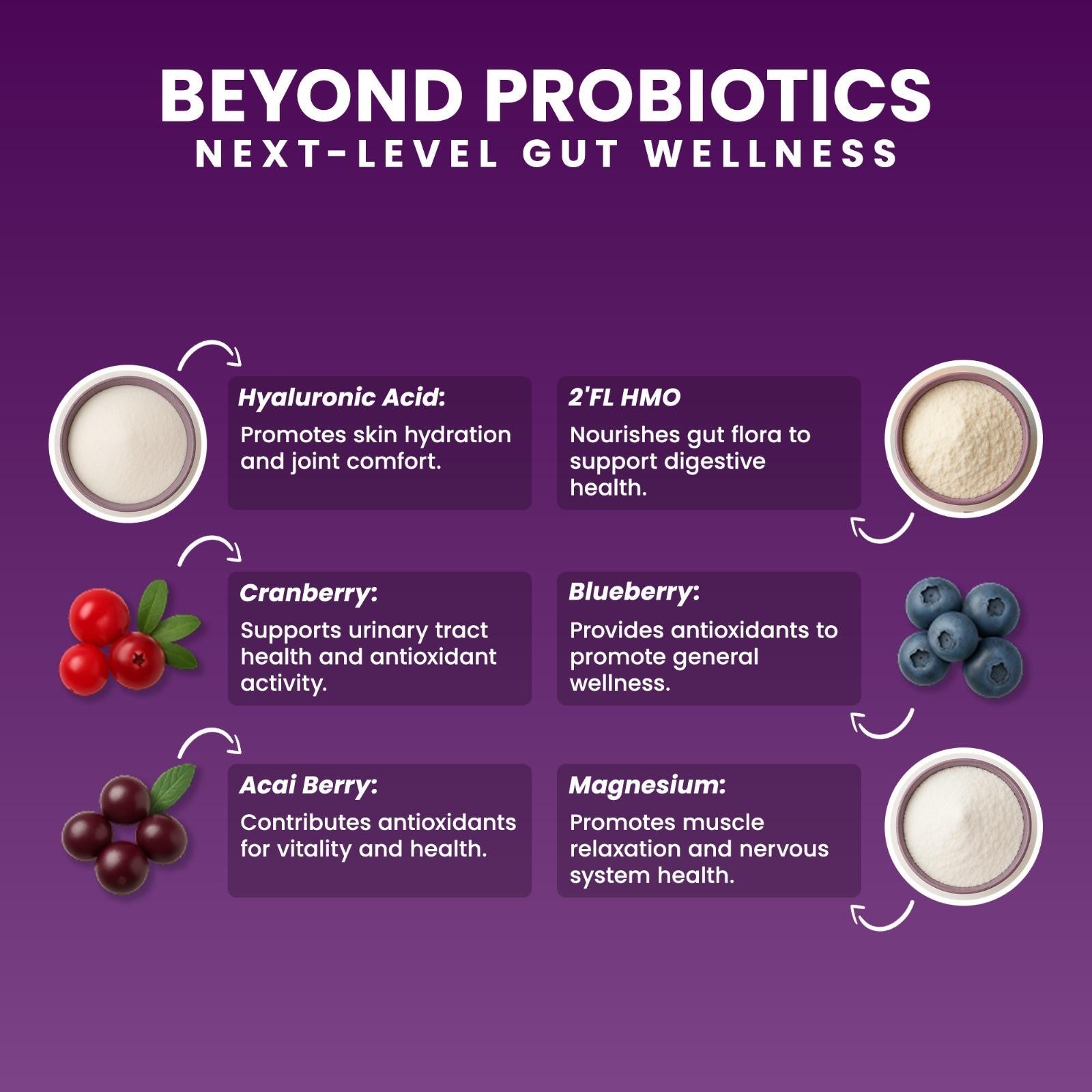
Akkermansia Digestive Probiotics for Bloating & Digestion
Digestive Probiotics: Reduce Bloating, Strengthen Gut Lining & Improve Digestion
Digestive discomfort — bloating, gas, irregularity, stomach sensitivity, or post‐meal heaviness — is one of the most common signs of an imbalanced microbiota.
This is why millions search for “probiotics for digestive health,” “digestive probiotics,” and “probiotics for digestive issues” every month.
Digestive probiotics are clinically shown to:
-
improve gas and bloating
-
strengthen the gut lining
-
enhance microbial diversity
-
support bowel regularity
-
improve immune balance
-
reduce digestive inflammation
This article explains exactly how probiotics improve digestion — backed by real scientific evidence — and how to choose the most effective strains for gut health.
Why Digestive Probiotics Matter
Your digestive system relies on a diverse and stable community of beneficial bacteria. When this community becomes unbalanced (due to diet, stress, antibiotics, infections, or low fiber intake), digestive discomfort begins.
A 2024 clinical review published in Nutrients confirmed that prebiotics and probiotics significantly improve gastrointestinal symptoms, rebalance the microbiota, and support gut barrier function (https://pmc.ncbi.nlm.nih.gov/articles/PMC10975713/).
Another umbrella meta-analysis published in the European Journal of Medical Research found that probiotics reduce the risk of diarrhea, bloating, nausea, and epigastric discomfort across multiple GI conditions (https://eurjmedres.biomedcentral.com/articles/10.1186/s40001-025-02788-w).
Digestive probiotics are not simply “good bacteria” — they are clinically proven tools for restoring gut function.

How Probiotics Improve Digestive Function
Digestive probiotics influence gut health through several key mechanisms:
1. Reduce Bloating, Gas & Digestive Discomfort
Beneficial strains such as Bifidobacterium BB-12 and B. breve reduce fermentative gas production and support more efficient carbohydrate breakdown.
2. Strengthen Gut Lining Integrity
Probiotics influence tight junction proteins and help stabilize the mucin layer that protects the intestines. Butyrate-producing bacteria like Clostridium butyricum fuel colon cells and support intestinal resilience — improving long-term digestive comfort.
3. Improve Motility & Regularity
Probiotics regulate gut motility, supporting smoother, more consistent bowel movements.
4. Support Immune Balance
Healthy gut bacteria interact with immune cells, reducing inflammation and GI tract sensitivity.
5. Increase Microbial Diversity
Diverse microbiota = more stable digestion. This is why probiotics are foundational for people who struggle with chronic digestive issues.
Best Probiotic Strains for Digestive Health
Not all probiotics have the same digestive benefits. The strains with the most clinical support include:
Bifidobacterium BB-12
Improves regularity, reduces digestive discomfort, and stabilizes the gut microbiota.
Bifidobacterium breve, B. adolescentis, B. bifidum
Support motility, reduce gas, and strengthen gut comfort.
Lactobacillus species
Support upper GI balance and immune function.
Clostridium butyricum
This next-generation digestive probiotic produces butyrate — a short-chain fatty acid essential for colonocyte repair and gut lining health.

Probiotics + Akkermansia: A Stronger Approach
Most probiotics work inside the gut lumen — but Akkermansia muciniphila works deeper, inside the mucin layer of the gut lining.
Akkermansia supports:
-
gut barrier strength
-
mucus layer regeneration
-
lower inflammation
-
improved metabolic flexibility
-
enhanced probiotic effectiveness
Together, probiotics + Akkermansia create a far more resilient microbiome — ideal for long-term digestive wellness.
Choosing the Right Digestive Probiotic Supplement
When selecting a digestive health supplement, look for a formula that includes:
-
multi-strain Bifidobacterium and Lactobacillus
-
butyrate-supporting species like C. butyricum
-
prebiotics such as inulin, FOS, or HMO 2′-FL
-
polyphenol-rich botanicals
-
clean-label ingredients
For a next-generation microbiome formula that supports digestion, gut lining health, and metabolic balance, explore:
👉 Boost Synergy GLP-1

🟦 INTERNAL LINKS
❓ FAQ (6 Questions)
1. What are digestive probiotics?
They are beneficial bacteria specifically designed to support digestion, reduce bloating, and maintain microbiota balance.
2. What probiotics help with digestive issues?
Bifidobacterium BB-12, B. breve, Lactobacillus species, and Clostridium butyricum are among the best studied.
3. How long until probiotics improve digestion?
Most individuals notice improvements within 1–3 weeks of consistent supplementation.
4. Can probiotics strengthen the gut lining?
Yes — especially strains that produce short-chain fatty acids (like C. butyricum) and support mucin production.
5. Should I take probiotics every day?
Yes. Daily use supports microbial stability and digestive comfort.
6. Do probiotics work better with prebiotics?
Yes — prebiotics feed probiotics, enhancing their colonization and effectiveness.
Written by Ali Rıza Akın
Microbiome Scientist, Author & Founder of Next-Microbiome
Ali Rıza Akın is a microbiome scientist with nearly 30 years of biotechnology and translational research experience in Silicon Valley. He is the discoverer of Christensenella californii, a novel human-associated bacterial species linked to metabolic health and mucosal integrity.
His scientific work spans:
-
mucosal immunology
-
gut barrier biology
-
oral–gut microbiome interactions
-
SCFA metabolism
-
next-generation probiotics (Akkermansia, Christensenella, Clostridium butyricum)
-
host–microbe signaling
-
microbial therapeutics
He is the author of Bakterin Kadar Yaşa: İçimizdeki Evren (Live as Long as Your Bacteria) and a contributor to Bacterial Therapy of Cancer: Methods and Protocols (Springer, Methods in Molecular Biology).
As Founder of Next-Microbiome, Ali develops advanced synbiotic formulations — including the industry’s first chewable Akkermansia-supporting synbiotic — designed to strengthen the gut lining, support metabolic resilience, enhance mucosal immunity, and harmonize the oral–gut microbiome axis.










